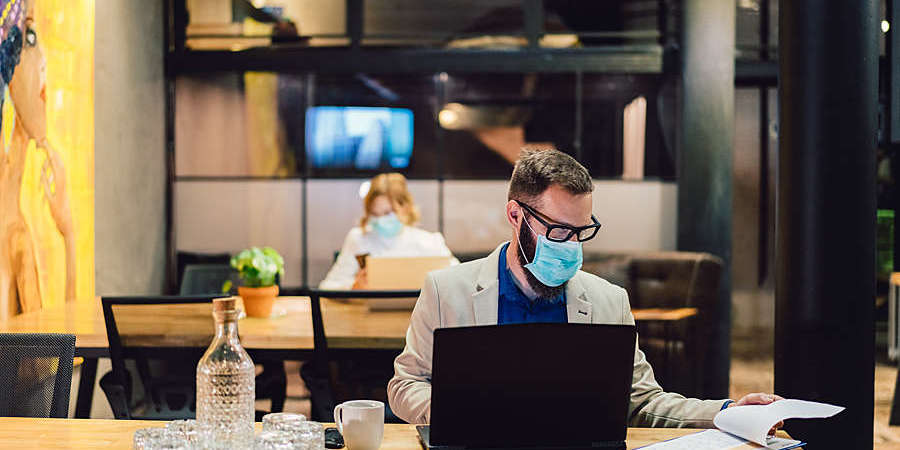
Hygiene has never been this important in history, which is being seen in recent times with the upsurge in the COVID-19 pandemic. The outbreak has changed people’s lifestyles in ways possible. The impact of COVID-19 in the workplace can be seen by the level of increase in remote working. It has affected the efficiency of employees, therefore getting back to the traditional method in some percent is essential. Healthy habits, strong immunity, and carefulness of contagious contacts are the saviour of the hour.
Control and Precautions to take:
- Avoid the office work or fieldwork for senior citizens or staff with a weak immunity (the ones who have diabetes, blood pressure, etc.) as they are more prone to mortality.
- Companies should regulate the number of staff which should be half of the occupancy of the workplace.
- Staff should maintain appropriate distance while working together or having a conversation.
- Employers and employees should take care of proper and timely sanitation and hygiene.
Hygiene Precautions:
Few hygienic precautions that can be taken to avoid the contamination of disease:
1. Frequently washing hands for more than 20 secs can help to kill viruses.
2.Hand sanitizers with enough alcohol content help to destroy viruses.
- Companies should encourage the use of masks, gloves, PPE kit, face shields that can keep theinfected touch away.
- Companies should take care of cleaning and disinfecting offices at least once a day.
- People with even a mild symptom of common viral must be given a separate area to sit and work. Symptom may be new or worsening cough, temperature equal to or over 38C, shortness of breath or difficulty breathing, feeling feverish, chills, muscle or body aches, fatigue or weakness, the new loss of smell or taste, gastrointestinal symptoms (abdominal pain, diarrhoea, vomiting), feeling very unwell, headache.
- The cleaning schedule should include cleaning of frequently touched surfaces and high-risk areas, such as light switches, lift buttons, doorknobs, stair rails, phones and computers, chairs and desks, EFTPOS machines, counters.
- Practice good respiratory etiquette, including covering coughs and sneezes.
- Ventilation plays a vital role in controlling the spread. Opening doors and windows to promote the flow of natural air at the workplace can reduce the risk.
- Everyone should wash their clothes immediately after they go back to their house and take a bath with warm water if possible.
- Companies should prominently remind the employees by displaying signs and posters around the workplace of the risks of COVID-19. Tell them about methods required to stop and reduce the spread, including posters on what is a virus, how it contaminates, and the precautions that should be taken to control the spread, such as hand washing, good hygiene, coughing etiquette, cleaning and physical distancing.The level of risk relates to how people interact and what items are touched. The likelihood of harm is high because there are many and easy modes of spread of viruses, and illness can be severe. This rare situation should be dealt with patience, positivism, carefulness, precautions, and optimism.
